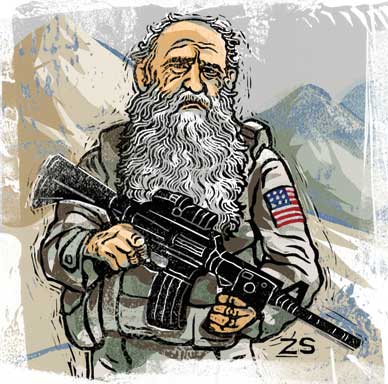
Despite WikiLeaks Revelations,
Congress Votes for War Funding
By Tom Hayden
July 29, 2010 - Never was the case so weak for throwing another $33 billion into the Afghanistan sinkhole, but that's what a defensive US Congress did anyway on Tuesday evening, July 27. The vote was 308-114, with Republicans supplying most of the prowar votes.
Washington-based peace groups, after weeks of e-mailing messages to Congress, put the best face possible on the vote, claiming a "significant" gain of fourteen additional antiwar votes over the 100 cast for a similar amendment by Representative Barbara Lee two weeks ago. (The new Democratic votes were cast by Corrine Brown, Kathy Castor, John Conyers, Rosa Delauro, Lloyd Doggett, Anna Eshoo, Chaka Fattah, Eddie Bernice Johnson, Hank Johnson, Marcy Kaptur, Carolyn Cheeks Kilpatrick, Gregory Meeks, James Moran, Christopher Murphy, Carol Shea-Porter, Mike Thompson, Lynn Woolsey and David Wu; while five Republicans joined the opposition: Paul Broun, Vernon Ehlers, Jeff Flake, Phil Gingrey and John Linder.)
Those casting prowar votes from safe liberal districts included Lois Capps, James Clyburn, Susan Davis, John Hall, Patrick Kennedy, Nita Lowey, Lucille Roybal-Allard, John Sarbanes and Joe Sestak. Significantly, Speaker Nancy Pelosi abstained from voting, which meant retreating from the chance to draw an antiwar line more firmly.





